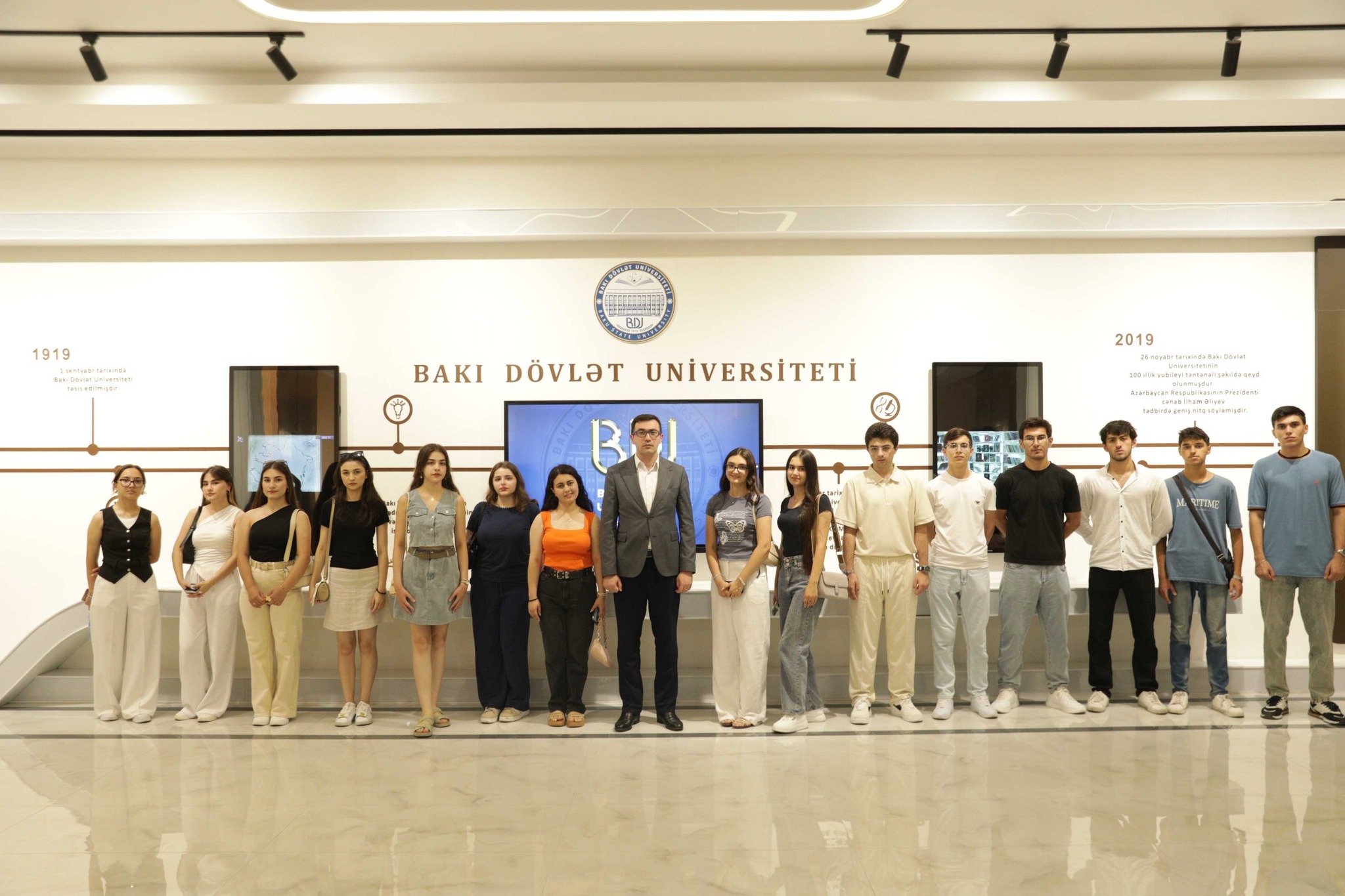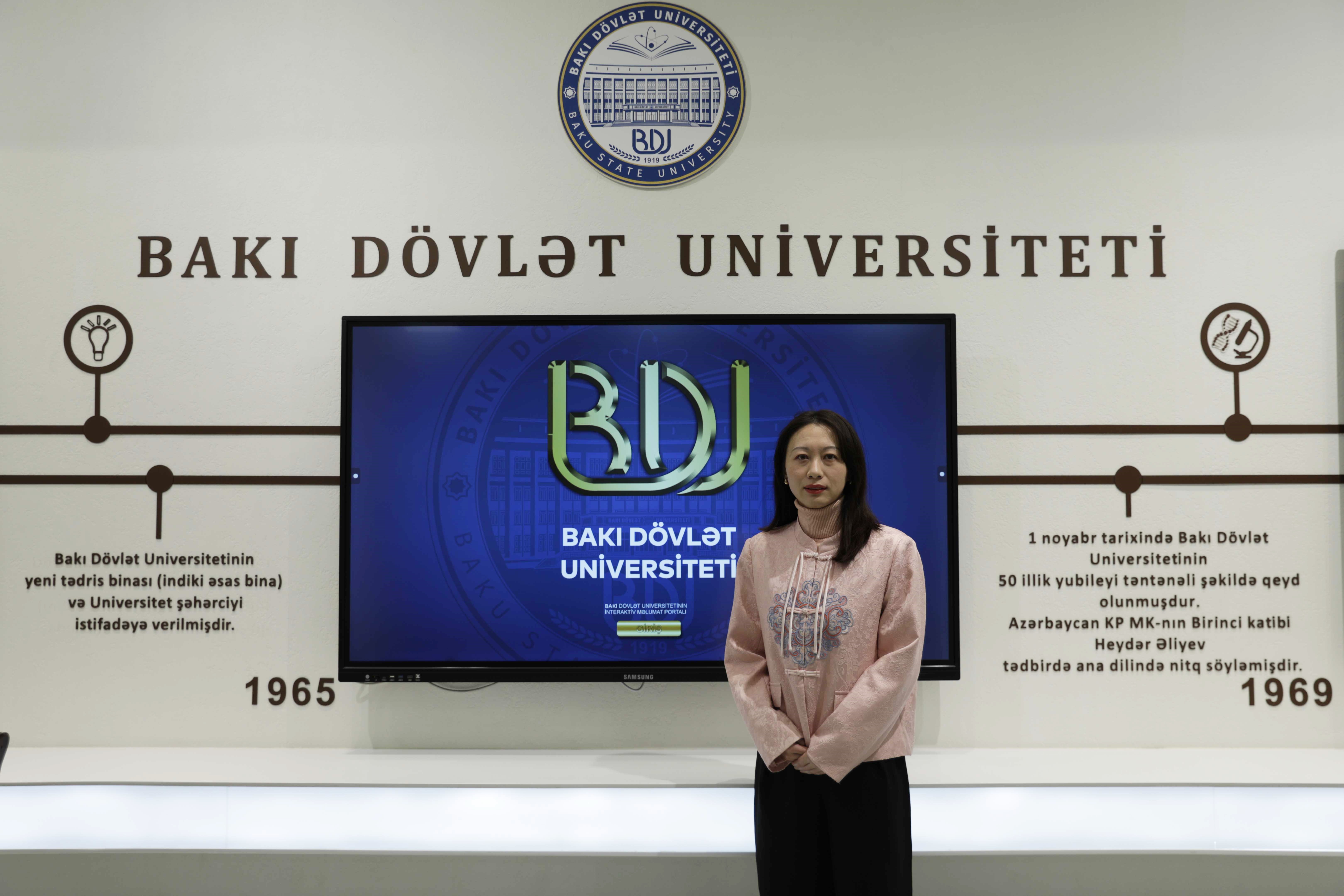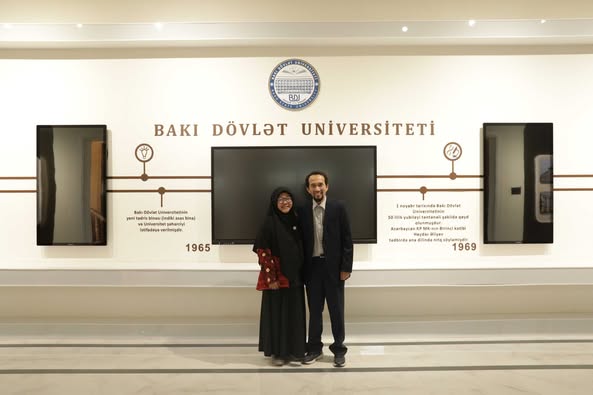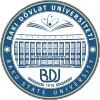Today, independent Azerbaijan is one of the states experiencing a dynamic pace of development. The progress of our economy has positively impacted the development of education in our country. One of the main priorities of our social policy is to establish a national education system that meets contemporary challenges and international standards. Since gaining independence, we have taken successful steps in building a modern education system in a short period of time. The integration of Azerbaijani education into the world education system has accelerated. The use of modern technology and innovations in teaching has expanded, with the successful completion of the "State Program on the Education of Azerbaijani Youth in Foreign Countries (2007-2015)." More recently, the "State Program on Increasing the International Competitiveness of the Higher Education System in the Republic of Azerbaijan for 2019-2023" was adopted.
Implemented reforms and large-scale infrastructure projects have created conditions for the reconstruction and sustainable development of socio-economic life. In accordance with the development concept of the Republic of Azerbaijan, the institutional foundations, infrastructure, and human resources of the educational system should be developed to provide individuals with comprehensive knowledge and skills. The development of education lays the foundation for improving the welfare of the population and enhancing the quality of individual lives. Education enables people to adapt to technologies flexibly, secure a decent place in the labour market, engage in lifelong learning, choose a healthy lifestyle, and adopt a responsible attitude towards the environment.
Heydar Aliyev, who returned to power for the second time at the insistence of the people to save the country from chaos and civil war in June 1993, quickly established stability in the country and focused on the development of education. Under his leadership, Azerbaijan transitioned to 11-year compulsory general secondary education. A new draft of the law "On Education" was submitted for public discussion. In March 1998, by the decree of national leader Heydar Aliyev, the State Commission was established to prepare the concept and strategy for national education development in independent Azerbaijan. As a result, the concept and strategy for educational development, covering three stages, were prepared, and their consecutive implementation began in 1999.
The idea of establishing the content of education based on the principles of statehood of independent Azerbaijan was one of Heydar Aliyev's main goals. The issue of preparing new textbooks for secondary schools was always a priority for him. He regularly monitored progress in this field and emphasized the exceptional importance of textbooks on the Azerbaijani language, Azerbaijani literature, and Azerbaijani history in the education system. Currently, the textbooks and teaching aids used in secondary schools have been completely renewed. The decision signed by Heydar Aliyev "On transitioning to the free use of textbooks by students of general education schools" has been implemented.
The education strategy, founded by national leader Heydar Aliyev, is currently being successfully continued and developed by President Ilham Aliyev within the framework of the strategy for sustainable socio-economic development of our country. In recent years, thanks to President Ilham Aliyev's attention and commitment to the education system, significant achievements have been made. Several Development Programs that will ensure a promising future for the national education system have been approved and implemented. Fundamental measures have been taken for the sustainable development of education. These measures include updating the content of education, preparing and publishing new programs, textbooks, and teaching aids, and continuously providing educational institutions with these resources. Additionally, efforts have been made to improve the management of education, strengthen the material, technical, and teaching base of educational institutions, and develop the use of modern information and communication technologies (ICT) in education. Furthermore, the expansion of international relations in education, improvement of the quality of education through targeted programs, and other similar priority areas have been emphasized.
 |
 |
 |
In accordance with the tasks set by President Ilham Aliyev, who considers education one of the main priorities of state policy, the Ministry of Science and Education implements programs across various fields. These programs include updating the content of education, preparing new curricula, textbooks, and teaching aids, improving education management, strengthening the material, technical, and educational bases of institutions, and integrating information technologies into the educational process. They also focus on personnel development, updating preschool education, enhancing technical and vocational education, organizing special education for children in need of care, and fostering the creative potential of talented children and youth, and other areas.
The state programs for socio-economic development of the regions of the Republic of Azerbaijan, approved by the orders of the head of state, are also directed towards the development of the education sector. These initiatives include the construction of new schools, major repairs, and further strengthening of the material and technical base of educational institutions.
To accelerate the integration of Azerbaijan's education system, particularly higher education institutions, into the global education system and the European higher education area, as well as to meet the requirements of the Bologna Declaration, President Ilham Aliyev signed an order on January 31, 2008, titled "On Some Measures Related to the Integration of the Higher Education Institutions of the Republic of Azerbaijan into the European Higher Education Area." According to the first paragraph of that order, "The State Program for Reforms in the Higher Education System of the Republic of Azerbaijan in 2008-2012" was prepared and subsequently approved by the Cabinet of Ministers. To ensure the implementation of the State Program, an action plan was developed by the Ministry of Education.
The selection of students for the 2015-2016 academic year, which was the final admission year under “The State Program for the Education of Azerbaijani Youth in Foreign Countries (2007-2015)”, concluded. This program aimed to send young Azerbaijanis to the world's leading higher education institutions in fields considered priorities for the country. The selection process involved experts from the Ministry of Education, relevant state institutions, and higher education institutions and a total of 3,558 individuals won the right to study abroad under this program. Additionally, 1,147 people successfully completed the relevant graduate registration. Of the graduates who completed their studies with high academic performance, 60 % are now working in the private sector, while 40 % are employed in the public sector.
In 2016, the Educational Student Loan Fund was established at the initiative of the Ministry of Education. This fund was created by state higher education institutions with the primary mission of providing long-term concessional loans to students from low-income families who have difficulty paying tuition fees, thereby creating equal educational opportunities.
 |
 |
|
In accordance with the tasks set by President Ilham Aliyev, who considers education one of the main priorities of state policy, the Ministry of Science and Education implements programs across various fields. These programs include updating the content of education, preparing new curricula, textbooks, and teaching aids, improving education management, strengthening the material, technical, and educational bases of institutions, and integrating information technologies into the educational process. They also focus on personnel development, updating preschool education, enhancing technical and vocational education, organizing special education for children in need of care, and fostering the creative potential of talented children and youth, and other areas. The state programs for socio-economic development of the regions of the Republic of Azerbaijan, approved by the orders of the head of state, are also directed towards the development of the education sector. These initiatives include the construction of new schools, major repairs, and further strengthening of the material and technical base of educational institutions. To accelerate the integration of Azerbaijan's education system, particularly higher education institutions, into the global education system and the European higher education area, as well as to meet the requirements of the Bologna Declaration, President Ilham Aliyev signed an order on January 31, 2008, titled "On Some Measures Related to the Integration of the Higher Education Institutions of the Republic of Azerbaijan into the European Higher Education Area." According to the first paragraph of that order, "The State Program for Reforms in the Higher Education System of the Republic of Azerbaijan in 2008-2012" was prepared and subsequently approved by the Cabinet of Ministers. To ensure the implementation of the State Program, an action plan was developed by the Ministry of Education. The selection of students for the 2015-2016 academic year, which was the final admission year under “The State Program for the Education of Azerbaijani Youth in Foreign Countries (2007-2015)”, concluded. This program aimed to send young Azerbaijanis to the world's leading higher education institutions in fields considered priorities for the country. The selection process involved experts from the Ministry of Education, relevant state institutions, and higher education institutions and a total of 3,558 individuals won the right to study abroad under this program. Additionally, 1,147 people successfully completed the relevant graduate registration. Of the graduates who completed their studies with high academic performance, 60 % are now working in the private sector, while 40 % are employed in the public sector.
At the same time, according to the measures related to reducing the negative impact of the coronavirus (COVID-19) pandemic and the resulting sharp fluctuations in the world energy and stock markets on the economy, macroeconomic stability, employment issues of the Republic of Azerbaijan, and business entities in the country, as outlined in the President of the Republic of Azerbaijan's Decree No. 1950 dated March 19, 2020, and the Decision of the Cabinet of Ministers of the Republic of Azerbaijan dated April 13, 2020, "On payment of tuition fees for students who are members of families belonging to the socially vulnerable population group," the tuition fees for the academic semesters of students who were members of families belonging to the socially vulnerable population group in 2020 were planned to be paid from the state budget and were implemented by semesters. The Decree of the President of the Republic of Azerbaijan dated June 17, 2021 on a number of measures related to the establishment and operation of the Education Student Loan Fund under the Ministry of Education of the Republic of Azerbaijan is one of the main factors affecting the improvement of the well-being of students from low-income families and the development of the educational process.
|
|
When preparing proposals for student admission to higher education institutions, significant attention is given to increasing the state order. In 2020, the forecast for student enrollment increased by 2.3% compared to the previous year, while the state order rose by 7.13%. Of the predicted places, 84.5% were allocated to state higher education institutions, and 15.5% to private institutions. In 2020, 50.1% of students admitted to higher education institutions were granted admission through state order, up from 44.75% in 2019.
Additionally, according to the President of Azerbaijan's decree dated February 14, 2019, the number of state-funded scholarship places at higher education institutions was increased by 16,000 units starting March 1, 2019. This expansion raised the ratio of students receiving scholarships to the total number of students to 45% for the 2019-2021 academic years. It is planned to increase this ratio to at least 50% starting from the 2020-2021 academic year. In addition, according to the aforementioned decree of the President of the Republic of Azerbaijan, the scholarship amounts for all educational levels have been increased.
Furthermore, to enhance the social protection of employees in higher education institutions, the average amount of educational expenses allocated for each institution was increased by approximately 30% for the 2019/2020 academic year. This adjustment was agreed upon with the President of the Republic of Azerbaijan and was formalized by Decision No. 428 of the Cabinet of Ministers dated October 3, 2019.
Baki State University, a key institution in Azerbaijan's educational landscape, continues to advance its modern education system. The university is guided by a strategy focused on creating transparent and efficient management mechanisms, developing educational infrastructure that meets contemporary standards, and integrating information and communication technologies into its training methodology to support lifelong education.
https://president.az/articles/9779
https://heydar-aliyev-foundation.org/az/content/blog/56/Elm-v%C9%99-t%C9%99hsil
https://edu.gov.az/az/higher-education
https://www.stat.gov.az/source/education/

